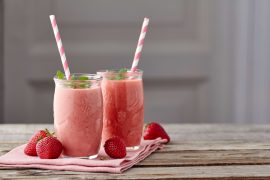Have you ever drank a glass of wine and felt fluent in French? It might not be your imagination. A new study found that a drink or two can lower inhibitions and may make it easier for new speakers to overcome their hesitations and awkwardness with a new language.
So is it just liquid courage or do people really speak non-native languages better after a little booze?
Recent studies have shown that drinking alcohol can have some incredible and unexpected benefits, but how it improves your ability to speak a foreign language wasn’t quite as well understood. So British and Dutch researchers conducted a study to better understand the phenomenon.
The study was recently published in Journal of Psychopharmacology. Fifty native German speakers who noted they drink alcohol on occasion also had to demonstrate proficiency in their second language, Dutch. Half of the participants were given water to drink and half were given an alcoholic beverage. Then each person was asked to have a two-minute conversation in Dutch with an interviewer. (The amount of alcohol varied based on the individual participants’ weights.)
The conversations were recorded and then rated by two native Dutch speakers. The participants were also asked to score themselves based on how fluent they felt they sounded.
Researchers found that the native Dutch speakers rated the participants who drank alcohol before their conversation as being more fluent in the language than those who drank water. Specifically, they reported the drinkers had better pronunciation than the non-drinkers.
Surprisingly, the ratings people gave themselves didn’t differ between those who drank and those who didn’t. Ratings for grammar, vocabulary and argumentation were similar between both groups.
The study had some shortcomings in that the participants knew whether they were drinking water or alcohol, and the authors noted that future research using an “alcohol placebo” would be needed “to disentangle the relative impact of pharmacological vs. expectancy effects.”
While the study didn’t measure people’s mental states or level of awareness on the day of the study, the authors conclude that it’s possible that a low-to-moderate dose of alcohol “reduces language anxiety” and therefore increases proficiency, Time reports.
The authors of the study pointed out that the dosage of alcohol was low enough as to not impair the participants, and that, if overdone, alcohol could easily have the opposite effect.




